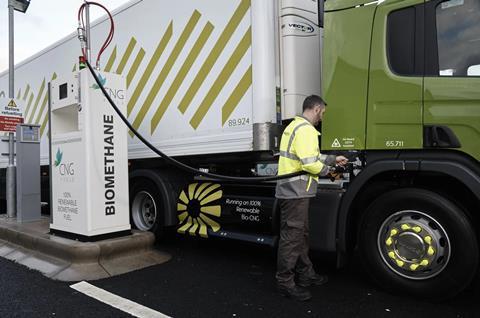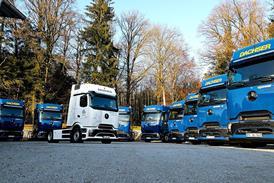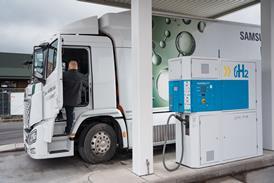ReFuels has opened its fifteenth biomethane refuelling station in the UK, strengthening the country’s renewable fuel infrastructure for heavy goods vehicles (HGVs). The new facility, operating under the CNG Fuels brand, is situated in Doncaster, South Yorkshire.

The strategic location of the station provides convenient access to both Immingham Docks and iPort, serving as a crucial link in the UK’s logistics network. The facility’s position allows fleet operators to reach 90% of the UK population and four major ports within 4-5 hours.
Philip Fjeld, CEO and co-founder of ReFuels, commented on the development: “This marks ReFuels’ 15th public access refuelling station in operation in the UK. We now can refuel more than 10,000 heavy goods vehicles daily with 100% renewable and sustainable biomethane. Our Doncaster station will be a key refuelling point for fleets operating between major national ports and distribution centres, using 100% renewable and sustainable biomethane to reduce their Carbon footprint and fuel cost compared to diesel.”
The new station features 10 simultaneous refuelling points with an annual dispensing capacity of 19 million kilogrammes of Bio-CNG. This addition brings ReFuels’ total UK network capacity to over 310 million kilogrammes of biomethane annually, potentially reducing co2 emissions by more than 850,000 tonnes compared to diesel fuel.
The Doncaster facility, owned through a joint venture with Foresight Group, forms part of ReFuels’ expansion strategy. The company aims to establish between 30-40 stations by the end of 2026, which would provide capacity for up to 23,000 HGVs daily and more than 650 million kilogrammes of biomethane annually.
ReFuels is currently constructing an additional station in Livingston, Scotland, which will support low-emission transport between Edinburgh and Glasgow. The company’s long-term strategy includes becoming a leading supplier of alternative fuels across Europe, with plans to incorporate Hydrogen and electricity options in its service offering.
Vehicles using the Bio-CNG stations can achieve CO2 emission reductions of 80-90% compared to traditional diesel fuel, according to the company.


















